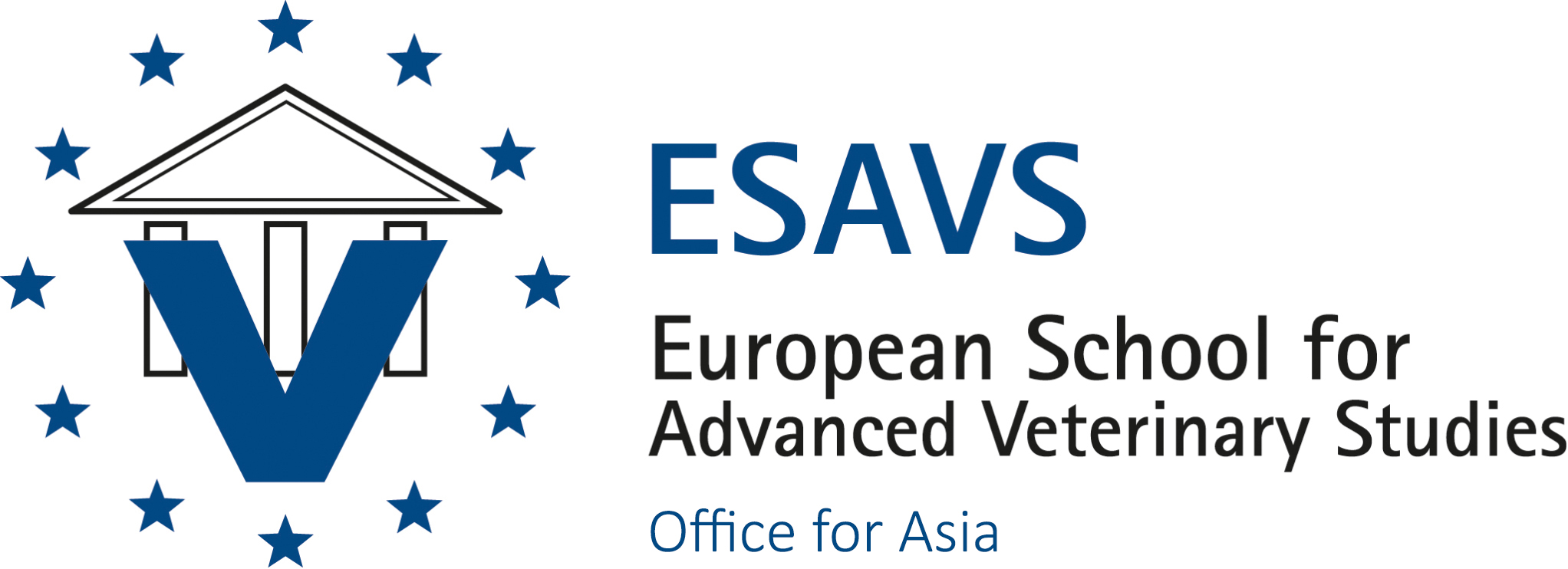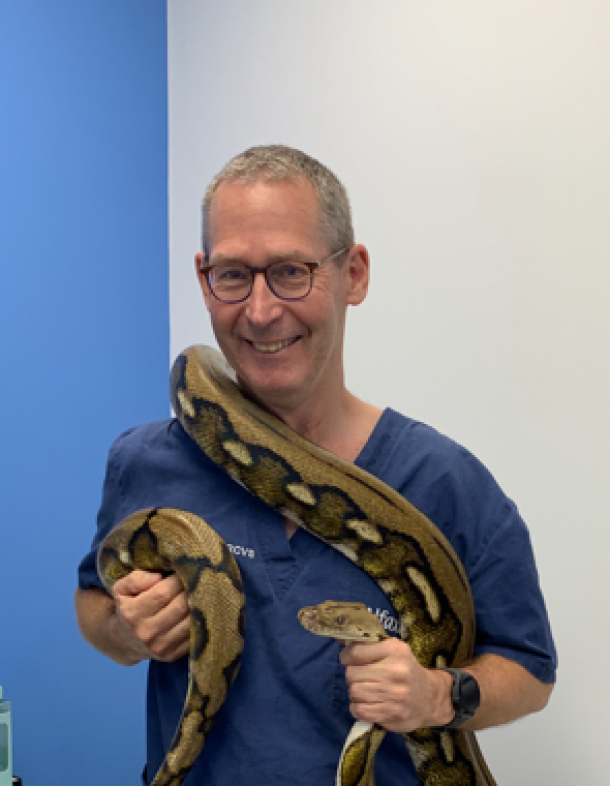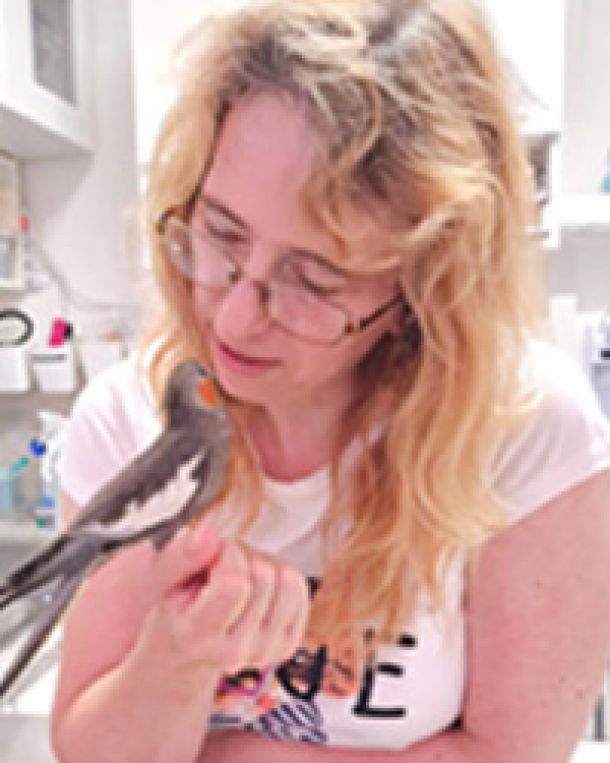Exotic Pets 3:
Clinical Medicine in Exotic Pets
29 June - 3 July 2024 | Shanghai, China
General Overview
General Overview
The ESAVS Exotic Pets Medicine and Surgery courses cover the core of the exotic pet medicine with particular emphasis on the diagnosis and treatment of captive reptiles, birds and small mammals from an advanced care perspective.
This program is designed specifically for veterinarians wishing to gain advanced experience in exotic pet medicine and to deepen further expertise in the practical management of patients (reptiles, birds and small mammal).
In this course participants will learn and discuss clinical parasitology, haematology, plasma chemistry of chelonians, lizards and snakes, birds and small mammals (rabbits, guinea pigs, chinchillas, ferrets) and methods of clinical parasitology, haematology and cytology in clinical practice.
The successful management of difficult to treat problems will be discussed.
Wet labs will provide practical approaches.
The intensive training will be at an advanced level with major emphasis on problem-solving approaches and will be case-oriented. All subjects for which a special course
is organised will be discussed extensively.
This course is part of a comprehensive study program consisting of 3 one-week modules. Much time is dedicated to interactive and practical training under the supervision of course masters and instructors, who are all internationally, recognized European or American specialists.
Key Features of ESAVS Exotic Pets Medicine and Surgery Courses:
- The Exotic Pets Medicine and Surgery 3 course consists of one-week residential course
- The course consist of teaching classes and intensive practical sessions in labs
- Course participants obtain access to comprehensive teaching materials and have the opportunity to practice in small groups
- Exotic Pets Medicine and Surgery courses of ESAVS are routinely recognized by the European College of Veterinary Dermatology (ECVD), which means they satisfy all the required criteria for continuing recognition in this discipline.
Topics
-
Clinical haematology/chemistry in veterinary practice with pet reptiles
-
Clinical haematology/chemistry in veterinary practice with pet birds
-
Clinical haematology/chemistry in veterinary practice with small mammals
-
Non-infectious diseases of pet reptiles
-
Non-infectious diseases of pet birds
-
Non-infectious diseases of pet small mammals
-
The most important infectious diseases of pet reptiles
-
The most important infectious diseases of pet birds
-
The most important infectious diseases of pet small mammals
-
Therapeutics and clinical pharmacology for pet reptiles
-
Therapeutics and clinical pharmacology for pet birds
-
Therapeutics and clinical pharmacology for pet small mammals
-
Analyses of case reports
-
Practical training – blood collection, interpretation
Language
All modules will be held in China, in English language with consecutive translation in Chinese.
This course is open for Newscomers!
CPD Hours: 40
ECTS credits (Master & Certificate): 5
Tuition Fee:1.300 - 2.350 EUR
Course Language: English with consecutive translation in Chinese
Saturday, 29 June 2024
08:00 – 09:00 Registration
09:00 – 09:30 Welcome and course goals
09:30 – 10:30 Clinical haematology/chemistry in veterinary practice with pet reptiles
10:30 – 11:00 Coffee Break
11:00 – 12:30 Clinical haematology/chemistry in veterinary practice with pet birds
12:30 – 13:30 Lunch
13:30 – 14:30 Clinical haematology/chemistry in veterinary practice with pet small mammals
14:30 – 15:30 Non-infectious diseases of pet reptiles I
15:30 – 17:30 Practical training & cases
Sunday, 30 June 2024
09:30 – 10:00 Coffee Break
10:00 – 11:30 Non-infectious diseases of pet birds I
11:30 – 13:30 Lunch
13:30 – 14:30 Non-infectious diseases of pet small mammals I
14:30 – 15:30 Non-infectious diseases of pet birds II
15:30 – 17:30 Practical training & cases
Monday, 1 July 2024
08:00 – 09:30 Non-infectious diseases of pet small mammals II
09:30 – 10:00 Coffee Break
10:00 – 11:30 The most important infectious diseases of pet reptiles
11:30 – 13:30 Lunch
13:30 – 14:30 The most important infectious diseases of pet birds
14:30 – 15:30 The most important infectious diseases of pet small mammals
15:30 – 17:30 Practical training & cases
Tuesday, 2 July 2024
09:30 – 10:00 Coffee Break
10:00 – 11:30 Therapeutics and clinical pharmacology for pet birds
11:30 – 13:30 Lunch
13:30 – 15:00 Therapeutics and clinical pharmacology for pet small mammals
15:00 – 17:00 Practical training & cases
Wednesday, 3 July 2024
08:00 – 09:30 Practical training – cases - reptiles
09:30 – 10:00 Coffee Break
10:00 – 11:30 Practical training – cases - birds
11:30 – 13:30 Lunch
13:30 – 15:00 Practical training & cases
15:00 – 16:30 Q + A, open discussion
Course Location
Small Animal Hospital Chulalongkorn University, 254 Phayathai Road, Pathumwan, Bangkok 10330, Thailand
Registration and Fees
Discount tuition fee for Thailand, Indonesia, Philippines, Malaysia, India, Sri Lanka, China, Pakistan, Lebanon and Vietnam: EURO 1.400,–
Early registration: Euro 1.300,--
(Deadline for FULL early registration payment: 28th March 2024)
Discount tuition fee for Macao, South Korea and Taiwan: EURO 1.850,–
Early registration: Euro 1.750,-
(Deadline for FULL early registration payment: 28th March 2024)
Tuition fee for Europe, Singapore, Hong Kong, Australia, New Zealand, United Arab Emirates, Canada, USA and Japan: EURO 2.350,–
Early registration: Euro 2.250,-
(Deadline for FULL early registration payment: 28th March 2024)
Course Location
Birkenfeld Pet Hospital Shanghai, No.1745 South Xi Zang Rd., Huangpu District, Shanghai
Birkenfeld Pet Hospital Shanghai, No.1745 South Xi Zang Rd., Huangpu District, Shanghai
Related Courses
| Exotic Pets 1: Methods of Diagnostic Imaging and Clinical Cardiology , Guangzhou/China, Prof. Dr. Knotek | 16. - 20. Jun 2025 | |
| Exotic Pets 2: Anaesthesia, Analgesia and Surgery, TBA/China, Prof. Dr. Knotek | 01. - 05. Jun 2026 |
For payment via Bank Transfer or Paypal please contact the ESAVS Office for Asia:
If you have any questions regarding the registration or any other further details for the courses in Asia please contact the ESAVS Office for Asia:





